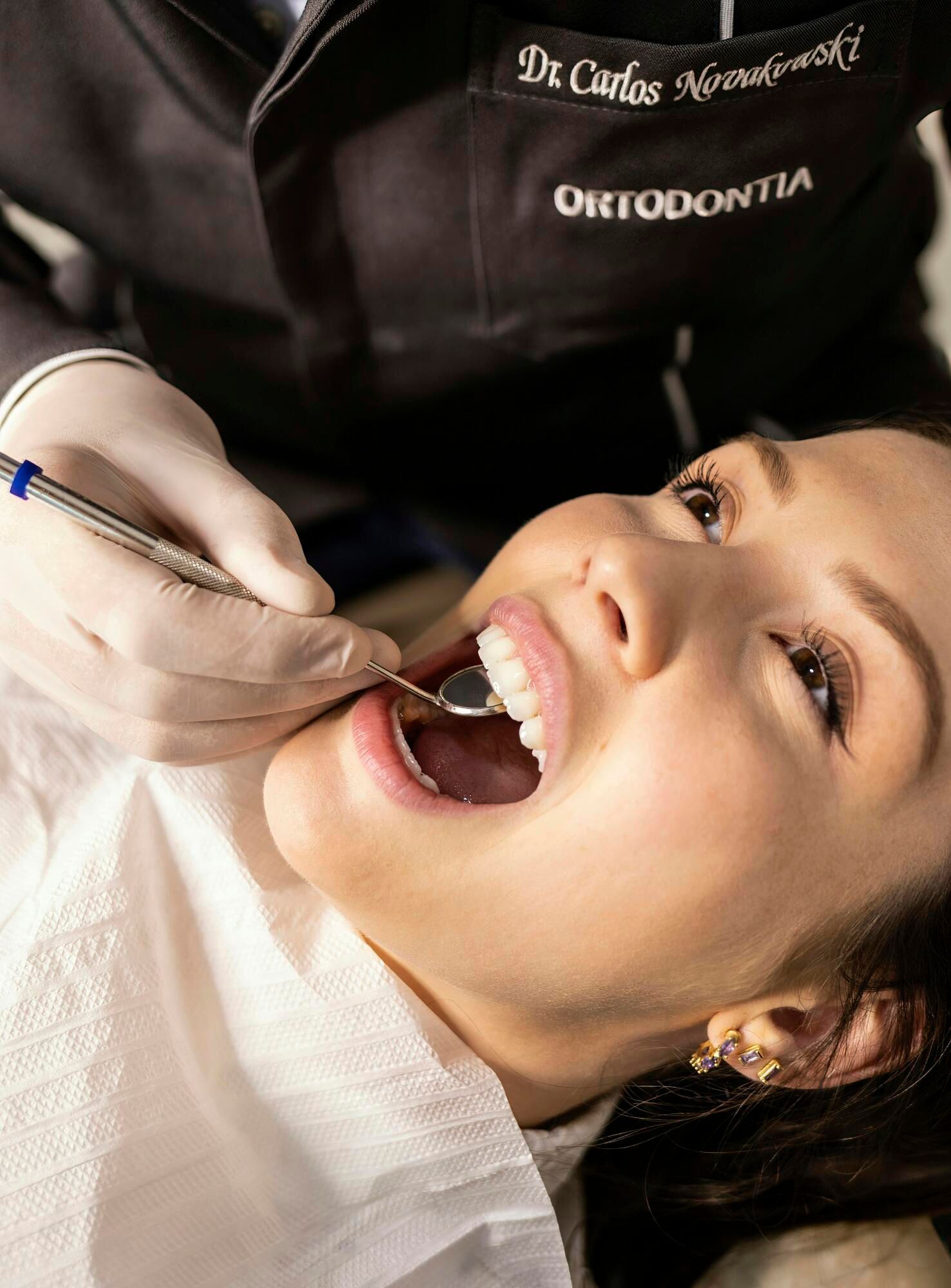Dental Implants Infection Symptoms: What You Need to Know
Like any surgery, there is a risk for infection with dental implants. Learn the dental implants infection symptoms to stay safe.
Did you know dental implants can have as high as a 99.8% success rate in the long-term, but much of that depends on you?
The first few hours and days following the installation of a dental implant are the most crucial. All the tissues are raw and vulnerable at this stage, which can contribute to infection after the dental implant installation.
Make sure to bite into this article on dental implants infection symptoms. It's a lot to digest, but you're not out of the woods because the surgery is over.
We also have some basic post-op and pre-op recommendations to keep you healthy!
Clamping Down on Dental Implants Infection Symptoms
Every year in the USA, more than 800,000 implants are placed , but worldwide the number might be as high as 5 million.
With so many implants placed, there are going to be failures. Sometimes, even if everything in the surgery goes right, there are other things that can go wrong. Much of the post-operative care is up to you, not your dentist.
To paraphrase Smokey the Bear, "Only you can prevent dental plant infection."
So what can you do, and what can you look out for?
1. Swollen or Red Gums
Whenever swelling occurs, there's something not quite right. Usually, that something is an infection. Swelling is your body's natural defense mechanism to flood an area with blood and lymph fluid.
This sends a rush of white blood cells and vital oxygenation.
After surgery, it's expected to have some swelling and pain, as everything is still fresh. If it's been 48 hours after your procedure and there is excessive swelling, or it hasn't gone down, definitely let your dentist know.
2. Pain or Fever
Fever and pain go along with swelling and redness, but infections can occur without swelling. Like an infection of a tooth, plaque and bacteria build up on the surfaces of an implant and prevent proper healing—even degeneration of tissue.
As your body tries to fight this ongoing infiltration, fever is a very useful tool for your body. Don't try to break the fever without intervention from your dentist. Even a 106-degree fever is not fatal or life-threatening (especially for adults).
If you can't shake the throbbing pain, even with medication, definitely go in to see the dentist. If it's been more than two weeks, you could be heading for dental implant failure.
3. Bad Taste and Breath
Bad taste or breath is a serious sign of infection. The change in taste often comes with the titanium coming in contact with the outside world. In addition, bad breath often is a sign of tissue degeneration (tissue loss).
If you already have acid reflux or GERD, it could be difficult to notice a difference. You should be even more aware, as the acids from your reflux could aid in damaging molar implant areas further.
4. Bleeding or Pus
Obvious signs that your body is fighting a war is oozing or pus, which goes along with the bad taste and breath in your mouth as well. Pus is from lymph and white blood cells trying to fight infection.
The debris from that war is pus.
You need increased blood flow to an area to get lymph and white blood cells there. Brushing can cause tearing of the sensitive tissues that are already under attack and excessive bleeding.
5. Loose Implant
Implant failure due to bone loss. Bone loss is usually a silent process, but it takes time. Inflammation and infection will destroy the tissues surrounding the implant, including bone. As your body carpet bombs the area, it destroys friendly tissues in the process as well as the enemy.
Loose implants can cause total failure, along with having an exposed implant and difficulty chewing.
If you haven't been following your dentist's advice and prescriptions, you may need extreme measures of implant removal. After that, bone regeneration products are applied to build your jaw bone back up. Finally, another replacement attempt may be necessary. The whole process could take a year or more in the most extreme cases.
The Way To Soothe Those Aching Gums
Make sure to brush and floss regularly. Also, if you do have any of these issues or even if you just have a hunch, make sure to let your dentist know. It's much less hassle in the long run for you and your dentist, and a lot less costly.
Use prescription mouthwashes and antibiotics that the dentist orders, along with any other protocol. Otherwise, you have to ask yourself, "Do I feel lucky? Well, do ya?"
Complicating Factors
There are a few complicating factors to look into before going under the knife.
First, is previous gum disease (periodontitis). Make sure to check surrounding teeth for periodontitis or other infection as well, as it is a sometimes overlooked detail.
Next, if you have diabetes, make sure to take extra care. As with almost anything having to do with blood flow, diabetes can cause complications and degeneration of tissue.
Finally, smoking is a biggie. Smoking causes innumerable complications and further degeneration with implants. If smoking causes a reattached finger to be rejected after surgery, rest assured smoke passing along an open wound in your mouth will do more.
Now You Know About Tooth Implant Infection Prevention
To crown this article on dental implants infection symptoms, the best time to get advice from dental professionals is 24 to 48 hours after your surgery.
Next, remember that if you take care of infection within two weeks, it is a more common and more easily treated dental implant problem. After two weeks of infection, it's been quite a while, and the road ahead might be a hard one.
If you found this article interesting and you're chomping at the bit for more, make sure to read more of our dental health blogs now!













